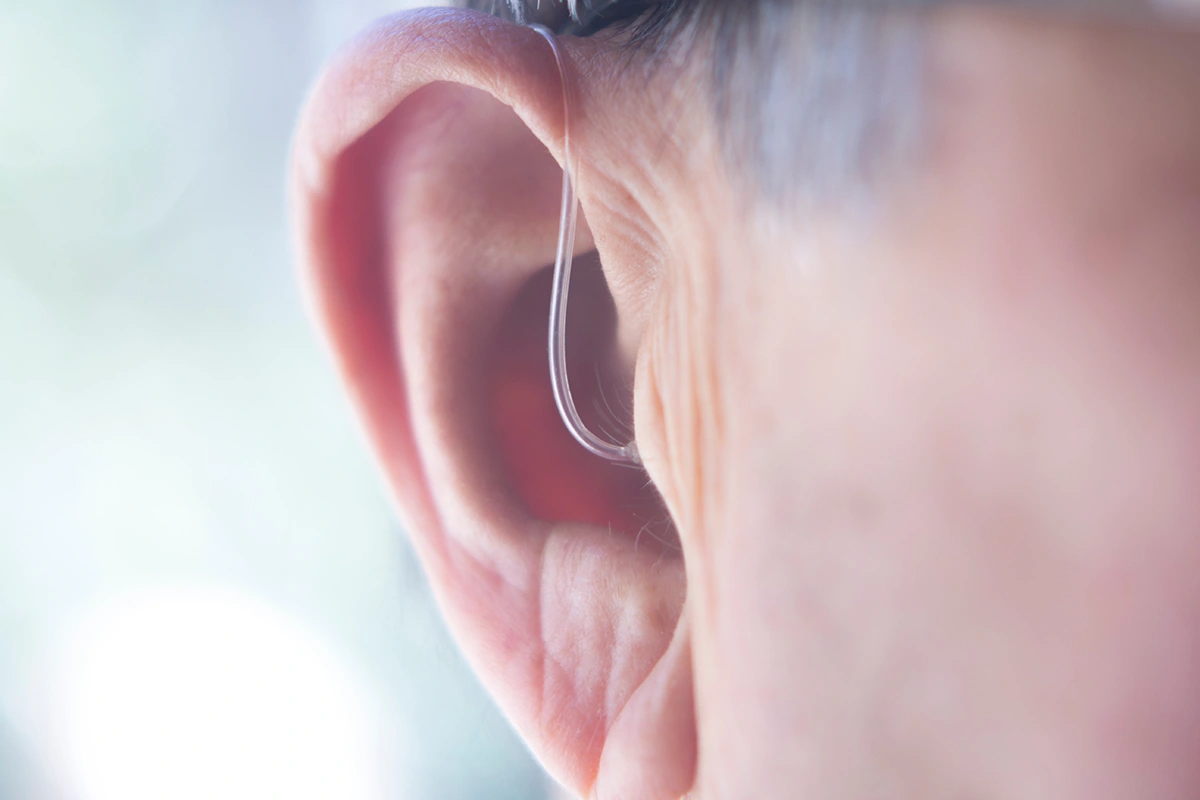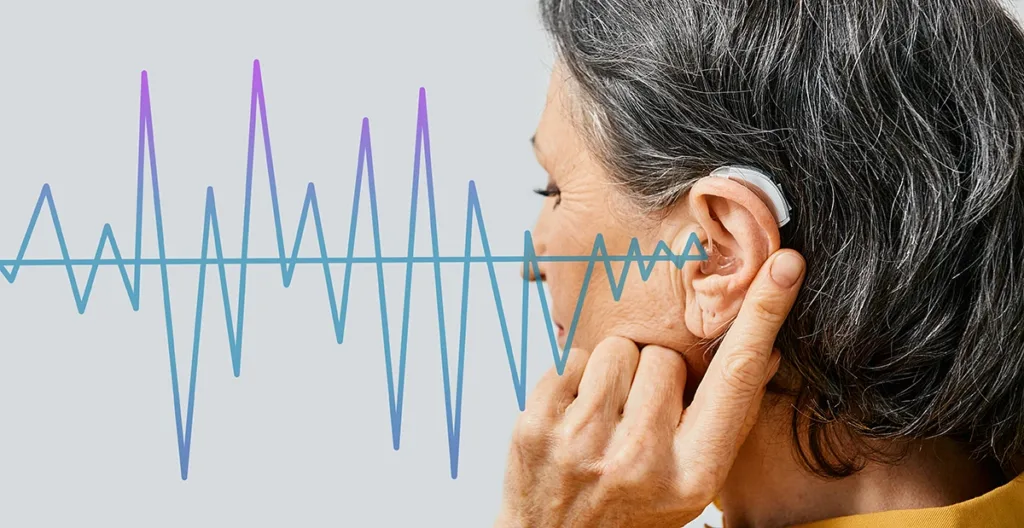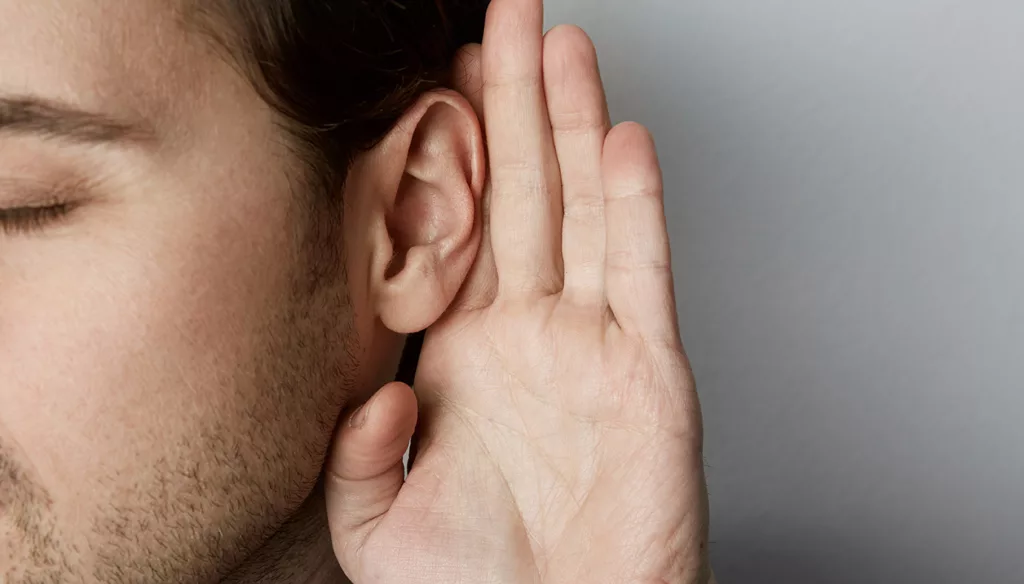
According to a groundbreaking study published in January 2024, wearing hearing aids may increase your life expectancy. The study, conducted by researchers from the University of Southern California, aimed to examine the connection between hearing loss, hearing aid use, and mortality rates in the United States. What they found was a direct link between hearing aid use and lower mortality rates in adults with hearing loss.
Given that nearly 48 million adults in the United States are currently experiencing some level of hearing loss, but less than 15% of people who could benefit from hearing aids are using them – these findings are pivotal.
The Study: Association Between Hearing Aid Use and Mortality in Adults with Hearing Loss

The study included almost 10,000 people from the U.S. aged 20 and older, who participated in the National Health and Nutritional Examination Survey between 1999 to 2012. Of those surveyed, over 1,800 reported having hearing loss. These participants were then separated into groups based on how often they reported using their hearing aids:
| Group | Number of Participants | Frequency of Hearing Aid Use |
|---|---|---|
| Never Users | 1,483 | never uses hearing aids |
| Non-Regular Users | 143 | uses hearing aids sometimes |
| Regular Users | 237 | uses hearing aids regularly |
Participants were considered regular users if they reported wearing a hearing aid:
- Once or more each week
- Once or more a day
- Almost always, for five hours or more every week
- Usually or always, 50% or more of the time
The researchers then cross-referenced the data from the surveys with follow-up data on the mortality rates of these participants available up to 2019. What they found was a 24% lower risk of mortality for people who use hearing aids regularly, compared to those who never used them.
Additionally, the risk of mortality for regular users was still lower regardless of factors, like age, medical history, and degree of hearing loss. The study also found that there was no difference in the risk of death for people who reported using hearing aids sometimes and those who never wore them.
Overall, the results of this study strongly suggest that wearing hearing aids consistently can contribute to a higher life expectancy for adults with hearing loss.
How Untreated Hearing Loss is Linked to Lower Life Expectancy

Studies such as the one outlined above underscore the importance of addressing hearing loss to not only better our hearing but to preserve the quality and longevity of life itself. All too commonly, hearing loss is attributed to just being a natural part of the aging process, and therefore not a condition that needs to be taken too seriously. However, neglecting hearing issues can have far-reaching consequences that extend beyond the ears alone.
Below, we provide an overview of potential health implications linked to untreated hearing loss, and some of the factors that can pose a threat to longevity and contribute to lower life expectancy.
Cardiovascular Disease (Heart Disease)
According to the Centers for Disease Control and Prevention (CDC), one person dies every 33 seconds from cardiovascular disease in the United States. While hearing loss does not cause cardiovascular disease, there are many studies that suggest the two conditions are linked.
One such study published in July 2018 concluded that hearing loss could be an indicator of underlying heart disease. Conversely, the researchers also concluded that treating heart disease may help prevent or slow hearing loss by ensuring sufficient blood flow to support healthy ear and auditory system function.
Cognitive Decline
Studies indicate the mortality rate of people with dementia is 50% higher than those without the condition. Our hearing and our brain’s auditory processes play a significant role in our cognitive health.
Research has found that untreated hearing loss significantly increases the likelihood of conditions such as Alzheimer’s disease and Dementia, particularly in older adults. A study from Johns Hopkins University of Medicine revealed that people with severe hearing loss are five times more likely to develop dementia.
Potential Mental Health Effects
Over time, the effects of untreated hearing loss can begin to have ramifications on our relationships with loved ones, colleagues, and even ourselves. This can lead to potentially negative mental health effects such as feelings of isolation and loneliness, anxiety, depression, and more.
Social isolation has been identified as a risk factor for various health issues, including heart disease, stroke, and mental health conditions. For instance, people who feel socially isolated have an increased risk of depression, which is a mental health condition that can contribute to a lower life expectancy.
Increased Risk of Falls
Untreated hearing loss can impact balance and spatial awareness, leading to an increased risk of falls, especially in older adults. Sound provides crucial spatial cues for orientation awareness, and hearing loss may compromise the ability to perceive these cues accurately.
This reduced situational awareness can contribute to difficulties in maintaining balance and an elevated risk of falls. For older adults, falls can result in serious injuries such as bone fractures or head trauma, which can significantly increase the risk of mortality.
Safeguard Your Health: Schedule a Hearing Test Today
Hearing loss is an incredibly common condition that can affect nearly every aspect of our lives; from strained relationships and mental health challenges to cognitive decline and even our life expectancy. Time and time again, research confirms significant potential for hearing loss to affect so much more than just our ears alone, supporting the importance of seeking care as soon as possible. If you have noticed recent changes in your hearing or have not received a comprehensive hearing test in over a year, don’t wait any longer.
The hearing care specialists at Audible are here to provide the personalized care you deserve. We are proud to offer a wide selection of award-winning hearing aid brands, and care solutions tailored to your specific needs, lifestyle, and budget. Find an Audibel hearing clinic near you today and take the first step towards safeguarding your health and well-being for years to come.







Have a question or Comment?